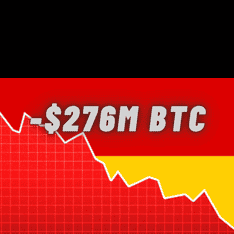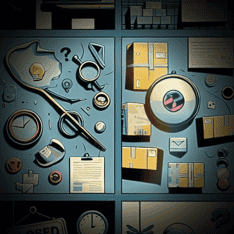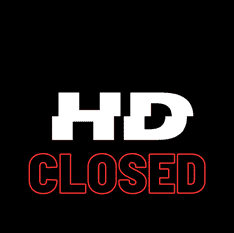![Post Image about The Secret Weapon of Elite Poker Players: Unmasking HUDs in [year] - Poker Tools Blog](https://betterchecked.com/cdn-cgi/image/format=auto,metadata=none,onerror=redirect,fit=scale-down,width=234,quality=35/https://cdn.sanity.io/images/6llxa8fs/production/c3671c6f26d82d64abef68ca4500f2cdff798431-1024x1024.png?w=1024&fm=png)
The Secret Weapon of Elite Poker Players: Unmasking HUDs in 2024


Checking out poker hands, spotting mistakes, and bettering your game can help you win more cash. You can totally level up your poker game with a complete guide to hand checking and some handy tools.
Or, you could just check your horoscope - because that's totally reliable, right? ;)
Ever been in a poker game, second-guessing every move? Thinking, "Am I playing this right or just winging it?" You're not alone. In poker, we call these doubts 'leaks'. They're sneaky little mistakes that chip away at your cash, leaving you wondering where it all went wrong. But how do you spot them? How do you fix these leaks and stop losing money? Maybe it's time to try out some poker hand analysis software? Or perhaps a detailed poker hand review is what you need? Let's figure this out together.
To get this, let's break it down. Poker leaks are basically weaknesses in your game that others can exploit. They can pop up in different ways like:
Finding and fixing your leaks can seriously boost your win rate and up your game. There are loads of ways to find your leaks, like:
Once you've found your leaks, you can start fixing them. This might mean changing your strategy, practicing more, or even getting coaching. But there are a few things to watch out for on this journey.
Remember, no one gets rid of all leaks. The goal is to control and reduce them. Perfection might be impossible, but the key is to keep focusing on improvement, not beating yourself up over mistakes. Keep your eyes on the future. You might be ready to fix those leaks and level up your poker game.
Once upon a time, I was in your shoes - stuck playing the same poker hands and making the same mistakes. I doubted my skills, wondering if I really got the game or if I was just gambling. Then, a buddy introduced me to poker software. At first, I wasn't sure. Could a computer program really help me up my game? But as I dug into the world of poker tools, I found they were the secret to unlocking my potential.
So, if you're feeling stuck like I was, exploring the world of poker tools could be a game changer.
If you play poker, you might have heard about 'leaks'. These are the mistakes in your game that make you lose money. It's tough to admit we're not as good as we think, isn't it? But checking yourself and getting feedback from others can help find these leaks and patch them up.
![Post Image about The Secret Weapon of Elite Poker Players: Unmasking HUDs in [year] - Poker Tools Blog](https://betterchecked.com/cdn-cgi/image/format=auto,metadata=none,onerror=redirect,fit=scale-down,width=234,quality=35/https://cdn.sanity.io/images/6llxa8fs/production/c3671c6f26d82d64abef68ca4500f2cdff798431-1024x1024.png?w=1024&fm=png)
The Secret Weapon of Elite Poker Players: Unmasking HUDs in 2024

Crunching Numbers Like a Pro: Mastering Equity Calculators

Poker Tools for the Ambitious Player: How to Reach New Heights in Tournaments

Unlocking Pro-Level Play: The Secrets of Hand Ranges

Legends in the Spotlight: The Best Poker Matches of the Last Decade

The HUD Hall of Fame: Timeless HUD Poker Tools That Have Stood the Test of Time
Now, imagine playing poker with your buddies. After the game, you look at the record of hands to find any mistakes.
With this info, you start looking at your gameplay more closely.
This shows how important it is to check yourself and get feedback from others. Regular self-checks and asking others for advice can help find your leaks and fix them. Remember, poker is all about skill, and knowing your own game better will make you play better. So, keep those cards close and your ego closer!
At first, I wasn't sure. Could poker hand analysis tools really boost my win rate? Hmm... Curious, I decided to test it out. So, I started with an equity calculator - because why not, right? Surprisingly, it helped me make smarter choices right off the bat. Over time, I noticed I was becoming more patient and picky. As a result, my win rate started to slowly go up.
It wasn't a massive jump, but it was real and noticeable. The more tools I used, the more game mistakes I could fix. Now, I'm totally convinced. While hand analysis tools alone won't turn you into a poker pro (sorry folks), they can definitely help increase your edge if used right. My slowly rising win rate is proof of that :) Now, I feel ready to turn my reviews into effective learning experiences. I'm set on fixing all my mistakes.
Ever wondered, 'Am I playing this right or just winging it?' That's a common question for poker players. You can use poker hand analysis software to check out your hands and improve your game. These cool programs take apart your past games, giving you insights that could totally change how you play. They make sense of complicated hand histories, turning them into easy-to-understand info for review. This helps you:
It's like having a personal coach who walks you through your old games, showing you where you can do better. These programs also give you stats on how your opponents play. By understanding their moves and habits, you can switch up your strategy to exploit their weak spots. The advanced search features in these programs let you focus on specific situations or decisions for a deep dive. Whether it's being aggressive before the flop or passive after the turn, these programs help you understand the ins and outs of your game. They often have easy-to-read visuals like:
making numbers easy to grasp and helping you get complex concepts. Some poker programs even have a 'what-if' scenario analyzer, letting players change things in a particular hand and see what happens. This encourages learning by doing and planning for different scenarios. Regular use of such programs not only improves your understanding of poker but also sharpens your decision-making instincts over time. As you keep trying out potential strategies, these programs are like your study buddy on your journey to becoming a pro. Knowing our weak spots and fixing them is key to getting better at poker. Finding out what these programs can do for us can be a really helpful step. So, don't just wing it, get a poker program - because who doesn't want a personal coach without the hefty price tag? ;)
Ever wondered what your poker hand history files are trying to tell you? Maybe it's time to find out. Poker hand analysis tools are a must-have for any serious poker player. They let you check out your hands, spot your weak points, and figure out where you need to get better. But do they actually work? Hell yes! Lots of players have used these tools to up their win rates and step up their game.
These are just two ways poker hand analysis tools can boost your game. Whether you're a newbie or a pro, there's always room to get better. So, if you want to level up your poker game, think about using one of these badass tools. You could be the next player with a cool story about how poker hand analysis tools bumped up your wins. And wouldn't that be something to brag about? :)
I used to ignore the importance of checking out my hands in a game. But after losing a bunch, I had to ask myself - was my game plan good or was I just winging it? (I mean, who needs strategy, right?) I knew I had to dig deeper. So, I started reviewing one game every week and quickly saw my mistakes:
I barely recognized this reckless player. (Is that me? No way!) After a month, my game got way better. Now, I review every game. Even if it takes forever, it's worth it. (Patience is a virtue, they say.) I'm finally fixing my mistakes and my game has leveled up. :) The takeaway is simple: Regular check-ins can lead to more victories. (Who would've thought?)
I used to play poker just for fun, not really thinking about my moves or any strategy. But when I started playing online for cash, things changed. I was losing more than winning, which made me realize I needed to check out my gameplay and figure out where I was messing up. So, I started a self-improvement journey, starting with reviewing my past games after each session. At first, it was tough to admit all the mistakes I was making. It felt like a harsh light was showing every mistake and missed opportunity. But over time, as I kept doing this, I began to see weaknesses in my strategy and worked hard to fix them. Slowly, my gameplay got better as I made smarter choices. My results improved and now I'm a successful player. The change didn't happen overnight, but rather it was a slow process. I know it's because of the many hours I've spent checking my moves. Regular practice is key, and my skills get better every day.
That's why regular poker game analysis is important. However, I'm just a casual player trying to understand all these complicated poker terms like "past games" and "strategy". Maybe I should just go back to betting and hoping for the best. But then again, as a professional writer for years, I can confidently say that regular poker game analysis is crucial. It helps:
By taking time to review games and get advice from others, you'll gain valuable knowledge and learn from both wins and losses. Self-evaluation is powerful—it can make a big difference in your poker journey. The path to becoming a successful poker player isn't about luck, it's about understanding the game, learning from your mistakes, and constantly improving. Maybe one day, you'll be the one giving advice to others on how to improve their poker game. Or maybe, just maybe, you'll be the one saying 'All in!' with a straight face and a full house. :)
I used to obsess over every poker hand, thinking the more I analyzed, the better I'd play. But all that did was stress me out and make it hard to use the info effectively. 'Hello, anxiety!' I started questioning myself - was I going too deep? Did I really need to spend hours reviewing each game?
Turns out, the key is balance - analyzing enough hands to spot my weak points and get better, but not so many that I'm drowning in data. So, how much is just right? How much is enough? It's like asking how many chips are enough at a buffet! I want to use my time as smartly as possible.
I can keep my edge without overdoing it. This is the least effort needed for the best results. If I analyze too little, I might miss opportunities to get better. But if I analyze too much, it's tiring and unproductive. There's a perfect middle ground somewhere. Regular self-checks are important, but poker is played at the tables, not just on spreadsheets. I mean, who wants to be known as the Spreadsheet King, right? I need to figure out the right amount of hand analysis to support my gameplay, not take over it. But what's the right amount? I aim to understand my weak spots without getting caught in the trap of overthinking. It's a tricky balancing act, but totally worth getting right. Or so they say!
Ever wondered, "Am I checking my poker hands enough to get better?" It's a common worry - we've all been there. The answer depends not just on how often you check, but also how deep you go. Do you just skim through your hands or do you really dig in to find your weak spots? It's super important to step up your game reviews and turn them into solid learning sessions.
You might be ready to jump into poker hand review and speed up your learning. Now, let's highlight some key points that will help you out, shall we?
You might be ready to level up your poker game. Let's get going, shall we? :)
I used to just play poker, then move on. But then, I started wondering - how was this helping me get better at analyzing my hands? So, I started keeping a record of all my hands. Ever thought about what those records are saying? No? Just me? Okay then.
I decided to find out. When I looked at them, I saw mistakes in how I played. I started questioning myself like
Tips from other good players helped a lot too. They pointed out stuff I hadn't noticed before. This whole review thing turned into a great way to learn. I started seeing how small changes could have won me more games. By learning from my mistakes, I got a lot better. Now, I'm a smarter player, always ready to understand my mistakes and fix them. I often ask myself, "Am I playing hands right or just gambling?" Turning your reviews into lessons can be really helpful. Trust me, it's not as boring as it sounds! :)
After losing a bunch of games, I found myself doing what most people do: looking back at my past games and questioning every move. Was I playing the best I could, or was I just winging it? (Haha, probably the latter.) To figure out where I was going wrong, I used all the poker analysis tools I could find. It was tough facing each mistake and badly played hand - talk about a reality check! The question that kept bugging me was, 'how can I turn these bummed-out reviews into learning opportunities?' I wanted to fix my mistakes, but it seemed like a huge task and almost pointless. Would I ever stop throwing away chips and hurting my confidence? (I mean, who needs self-esteem, right?) I knew I was ready to put in the work; I just needed to look at hands objectively. I was sure that the answers were hidden in these game history files. My job was to dig deep and find them. There was no quick solution, but I was committed to thorough, honest reviews. I was determined to turn these losses into lessons. I made a promise to myself - I wouldn't let another big loss happen without learning from it. (Because, you know, fool me once...) It was time to carefully analyze my hands. To show this new commitment, I set several key strategies.
As a poker player, I used to just analyze my hands by myself. I'd look at my past games, figure out what went wrong, and then move on. But recently, I had an 'aha' moment - I realized that I was missing out on getting better because I wasn't asking for advice or thoughts from other people.
So, in a stroke of genius, I decided to start posting my hands on a poker forum.
This has really helped me out. Not only did I get some good tips on how to handle certain situations differently, but I also discovered new tools like Poker Copilot, which I didn't even know existed before. It's like having a poker coach with you, helping you step up your game.

3 bullish arguments that Bitcoin price just bottomed at $53K

Messi & $WATER promotion: Solana token's wild rise and ethical concerns

Mid-March deadline for Solana ETF: Analyst predicts big moves

Germany sells BTC: government readies $276M Bitcoin sell-off

Why dropshipping is bad in 2024: truth behind the failure rate

Trade skins for PROFIT: 5 ways to make it work

Ukraine's shocking PS4 farm bust for illegal FIFA coins

Hypedrop closing: exit scam claims & withdrawal issues

Hypedrop crypto hack: Alphapo's $61M loss in 2023
It can help you notice mistakes that you might have missed and give you fresh ideas and strategies to try. So, asking for help and feedback from others could seriously level up your poker game. You might end up learning more than you expected. Who knew? :)
So, I once folded pocket kings before the flop. Yeah, I ditched one of the best starting hands in poker like it was nothing - talk about a rookie move! After hours of getting crappy cards, I was fed up and impatient. When those sweet kings finally landed in my hand, I stupidly decided to fold. And guess what? The flop came king high, making me kick myself for being so hasty. But hey, it wasn't all bad; it taught me a thing or two about patience and strategy in poker.
It made me wonder - how can I review my poker hands to improve? What tools can help me figure out where I screwed up? How can I fix my weak spots for good? This self-improvement journey led me to some cool insights.
As a seasoned poker player and copywriter, I've realized that doing thorough post-game reviews is key for continuous improvement in the game. By analyzing played hands, identifying weak spots, and pinpointing areas for improvement, players can turn their mistakes into valuable learning opportunities. It's not just about reviewing losses but also understanding the logic behind successful plays.
This article was written, checked and verified by multiple authors to ensure maximum accuracy and up to date data. We strive for providing the best and most helpful resources about Poker Tools available.

Have suggestions or want to become an author for our poker tools magazine as well?